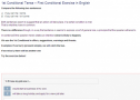Cargando...
Recursos educativos de Deutsche Sprache para Segundo de ESO
-
Nivel educativo
-
Competencias
-
Tipología
-
Idioma
-
Tipo de medio
-
Tipo de actividad
-
Destinatarios
-
Tipo de audiencia
-
Creador
-

Mystery writing
Tiching explorer Organización
- 1 lo usan
- 7340 visitas
This workshop provides writing tips, strategies, and challenges to help us write and publish a mystery. We can publish our own mystery online.
-

Math in daily life
Tiching explorer Organización
- 9151 visitas
In this unit we can learn how numbers can affect our everyday life.
-

-

Democracies in the World
Tiching explorer Organización
- 2 lo usan
- 8608 visitas
In this map we discover which countries are democratic, and those who are not.
-

Webquest: Haiku poets
Tiching explorer Organización
- 1 lo usan
- 3772 visitas
Webquest designed to help us learn about and write Haiku poems. It contains individual task and group work.
-

Webquest: Religion comparison
Tiching explorer Organización
- 2 lo usan
- 8077 visitas
In this webquest we study five major religions of our society with some similarities and differences (Hinduism, Buddhism, Daoism, Judaism, Christianity).
-

Frequency adverbs
Tiching explorer Organización
- 1 lo usan
- 10094 visitas
The resource consists of a grammar lesson about frequency adverbs (usually, never, always, sometimes, often, seldom, rarely). We read an explanation and examples, and then complete several practice exercises.
-

Webquest: Environment
Tiching explorer Organización
- 3 lo usan
- 7848 visitas
Resource designed to help us become aware of the importance of protecting the environment. We gather information about the environment and use the technology to create a magazine. We work in groups.
-

Game: Pronunciation of past simple
Tiching explorer Organización
- 20 lo usan
- 3981 visitas
Resource consisting of a game in which we have to group the past simple regular verbs according to their pronunciation: id, t or d.
-

Conditional tense: First conditional
Tiching explorer Organización
- 2 lo usan
- 7728 visitas
This resource contains explanations about the use of first conditional and exercises to practise this structure.
Te estamos redirigiendo a la ficha del libro...













